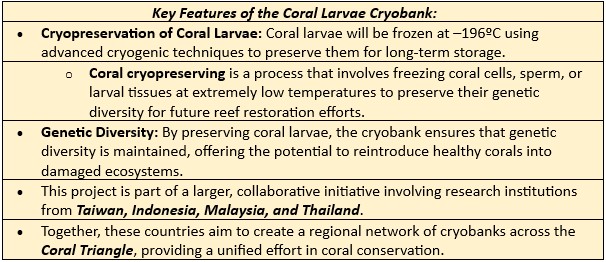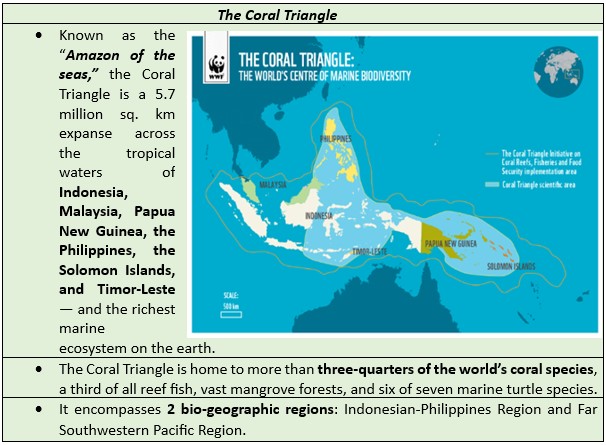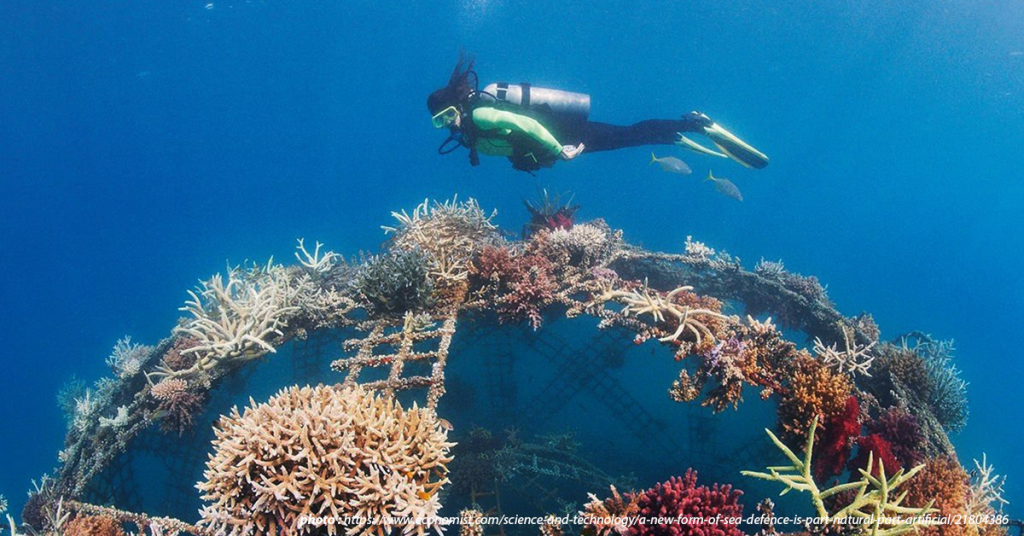Context: The Philippines has pioneered Southeast Asia’s first coral larvae cryobank, a groundbreaking initiative to preserve the genetic diversity of coral species and restore damaged reefs.
- Located at the University of the Philippines Marine Science Institute, this facility will freeze coral larvae at ultra-low temperatures, ensuring that they can be revived for reef restoration in the future.

Biorock Technology:
- Biorock Technology, or mineral accretion technology is a method that applies safe, low voltage electrical currents through seawater, causing dissolved minerals to crystallize on structures, growing into a white limestone similar to that which naturally makes up coral reefs and tropical white sand beaches.
- When a positively charged anode and negatively charged cathode are placed on the sea floor, with an electric current flowing between them, calcium ions combine with carbonate ions and adhere to the structure (cathode). This results in calcium carbonate (CaCO3) formation.
Coral Reefs:
- Coral reefs are vibrant underwater ecosystems built from colonies of coral polyps, which secrete calcium carbonate to form hard, limestone skeletons that accumulate over time.
- They occur in more than 100 countries and territories, and whilst they cover less than 1 per cent of the seafloor, they support at least 25 per cent of marine species.
Threat to Corals:
- According to the Status of Coral Reefs of the World 2020 report, the planet lost 14% of its corals between 2009 and 2018.
- Scientists have warned that without drastic action to keep global warming to 1.5º C, 70-90% of live coral cover could be lost by 2050.
- According to the UN Environment Programme, ocean temperatures may take decades to stabilise even under the most ambitious climate targets, leaving coral ecosystems dangerously exposed in the interim.
- In addition to this, growing carbon emissions, destructive fishing, air, water, and soil pollution, and the accelerating effects of climate change are all driving coral bleaching.


